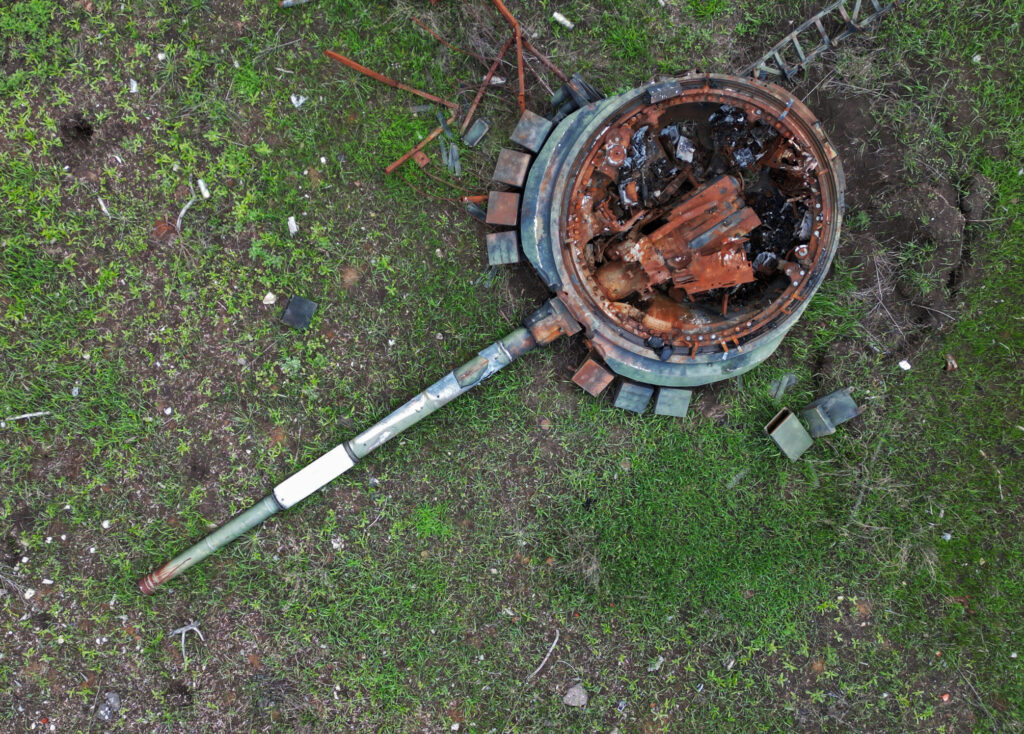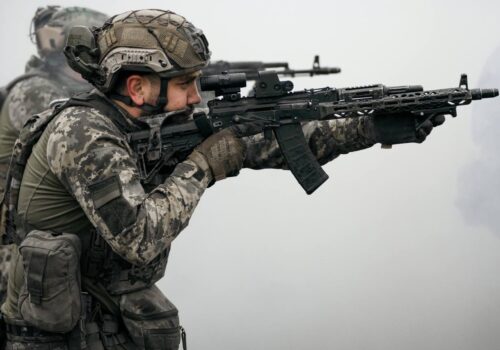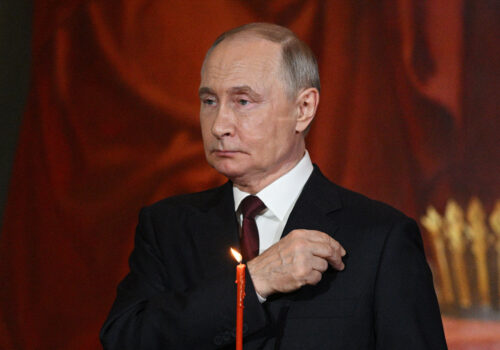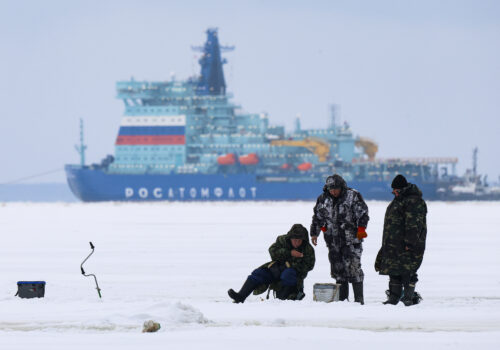US President Donald Trump launched a fresh attack against Ukrainian President Volodymyr Zelenskyy on April 23, accusing him of obstructing peace negotiations and prolonging the war with Russia. Trump’s comments came after Zelenskyy rejected the idea of ceding Crimea to Russia as part of a US-brokered plan that some skeptics say would reward the Kremlin and grant Moscow most of its objectives while offering Ukraine little in return.
Ending the war between Russia and Ukraine has been Donald Trump’s top foreign policy priority throughout the first hundred days of his new administration. This has led to mixed results. The US leader has won praise for initiating the first meaningful talks since the early months of the Russian invasion, but he has also been accused of adopting an overly Kremlin-friendly approach to negotiations that has seen the US consistently pressure Ukraine while offering Russia a series of concessions.
The eagerness of the new US administration to reach some kind of settlement comes as no surprise. During the 2024 presidential election campaign, Trump vowed to broker a peace deal between Russia and Ukraine as soon as possible. Since returning to the White House in January, he has sought to distance himself from the current confrontation with the Kremlin, and has repeatedly expressed enthusiasm for normalizing relations with Moscow.
This dramatic shift in US foreign policy is sparking considerable alarm in Kyiv and other European capitals. Concerns are now mounting that if Ukraine is forced to accept a pro-Putin peace deal, the country would be unlikely to survive much longer as an independent state. This would represent an historic victory for Putin’s Russia, with profound geopolitical repercussions that would be felt far beyond the borders of Ukraine.
Stay updated
As the world watches the Russian invasion of Ukraine unfold, UkraineAlert delivers the best Atlantic Council expert insight and analysis on Ukraine twice a week directly to your inbox.
In Russia itself, a successful peace deal would vindicate the entire invasion of Ukraine and further consolidate the country’s ongoing transition toward a fully totalitarian model of government. Today’s militarization of Russian society would intensify, with imperial propaganda dominating the national information space and defense spending rising to unprecedented levels. Unpopular aspects of the current war such as heavy battlefield losses and sanctions-related shortages would soon be forgotten as triumphant Russians embraced a new era of imperial expansionism.
Others would draw very different conclusions from a Russian victory in Ukraine. The failure of the existing international order to prevent the invasion and occupation of a major European country would send shock waves around the world and mark the dawn of a dangerous new era defined by the principle that might is right. This would soon lead to sharp increases in defense budgets as nations rushed to rearm in order to avoid suffering the same fate as Ukraine.
Russia’s frequent use of nuclear blackmail during the invasion of Ukraine would be particularly consequential. The Kremlin’s readiness to engage in nuclear saber-rattling would convince many countries that in order to be truly safe, they must acquire nukes of their own. In such a scenario, the existing nuclear nonproliferation architecture would collapse and be replaced by a nuclear arms race that would significantly increase the potential for a future nuclear war.
For Putin, a successful outcome in Ukraine would be a stepping stone toward even more ambitious foreign policy adventures. He would almost certainly seek to continue reasserting Russian dominance across the former USSR, with his next targets likely to include Moldova, Georgia, Armenia, and the countries of Central Asia. He may also seek to go further into Central Europe. Confronted by a demoralized and weakened West, Putin would surely be tempted to escalate his campaign of aggression against front line nations like Finland or the Baltic states in order to expose the emptiness of NATO’s collective security guarantees and discredit the alliance.
An emboldened Russia would also seek to increase its military and economic presence in other regions of the world including the Arctic, the Middle East, Latin America, and Africa. With sanctions no longer in place and Russia increasingly viewed as a geopolitical winner, potential allies would flock to Moscow. In this new reality, Putin’s current authoritarian alliance with China, Iran, and North Korea would serve as the basis for a far larger anti-Western grouping.
Eurasia Center events

Any settlement that leaves Ukraine partitioned, isolated, and disarmed will not bring peace. On the contrary, it would signal the start of a new stage in the country’s agony marked by the slow bleeding of territory, population, and sovereignty. Step by step, an abandoned Ukraine would gradually be absorbed into Putin’s new Russian Empire. This would place Europe’s second-largest army under Russian control, while also providing the Kremlin with vast additional industrial and agricultural wealth to fuel Putin’s expansionist agenda.
Meanwhile, Europe would lose its Ukrainian shield at a time when the continent is already facing up to the reality of a drastically reduced US commitment to transatlantic security. While European leaders are now urgently addressing the need to rearm, few would currently be confident in their ability to withstand a determined Russian offensive. Without Ukraine’s battle-hardened million-strong army to protect them, the countries of Europe would represent an extremely inviting target that Putin may be unable to resist.
After more than three years of relentless horror and destruction, nobody wants peace more than the Ukrainians themselves. But most Ukrainians also recognize that a bad peace will mean no peace at all. Handing Russia victory in Ukraine may temporarily create the illusion of peace, but in fact it would merely set the stage for a dangerous new era of international insecurity marked by militarization, authoritarianism, nuclear proliferation, and wars of aggression.
Elena Davlikanova is a fellow at CEPA. Lesia Ogryzko is director of the Sahaidachny Security Center.
Further reading
The views expressed in UkraineAlert are solely those of the authors and do not necessarily reflect the views of the Atlantic Council, its staff, or its supporters.

The Eurasia Center’s mission is to enhance transatlantic cooperation in promoting stability, democratic values, and prosperity in Eurasia, from Eastern Europe and Turkey in the West to the Caucasus, Russia, and Central Asia in the East.
Follow us on social media
and support our work
Image: A drone view shows a tank turret in the abandoned town of Marinka (Maryinka), which was destroyed in the course of Russia-Ukraine conflict in the Donetsk region, a Russian-controlled area of Ukraine, April 8, 2025. (REUTERS/Alexander Ermochenko)





